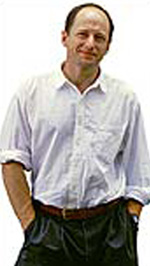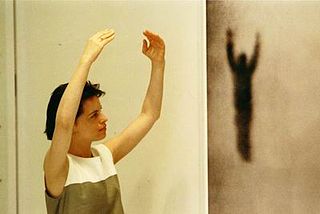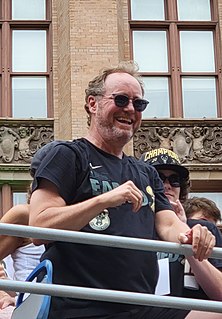A Quote by Ruth Ozeki
I am really interested in the way we relate to time. In particular, the way readers and writers talk to each other. Casting your voice out into the future is very beautiful to me.
Related Quotes
Many years ago, in the late '70s, I toured colleges along the East Coast and I presented a kind of show where I got a lot of books and poetry and pieces of [William] Shakespeare and other writers that I admire, read it to the class and then afterward we would talk and I would answer questions. It was really a way of expressing and finding out about where I was at that particular time, so it was very therapeutic for me.
Blogging has mostly been an opportunity to react more immediately to experiences to try out ideas that I may end up using in the print media or in some other place. When I write books, it's a way for me to bring readers into the experience of writing the book, all through the process of writing the books that I write. I talk about what I'm up to in the blog. I let people know what I am doing. To me, it's just part of putting my professional life up in a way that people who are interested in it can access; and learning things from them as well.
That's really the essence of what any fiction writer does. Some of it is research-based, but most of it is a really long-term, imaginative, empathetic effort to see the world the way someone whose experiences remote from yours might see it. Not every writer works that way; some writers make a wonderful career out of writing books that adhere very closely to how they view the world. The further I go with this, the more interested I get in trying to imagine my way into other perspectives that at first seem foreign to me.
The future's so random, and so mobile, there's no way you're going to get to your vision of what you want your community to be just by chance alone. I really believe you have to let people know, to use your voice, to say, 'this is what I like about my place, I want to keep it this way, this is what I think can be improved, this is what I disapprove of.' That's the only way you can have a part in shaping the future.
I write in spurts. I write when I have to because the pressure builds up and I feel enough confidence that something has matured in my head and I can write it down. But once something is really under way, I don't want to do anything else. I don't go out, much of the time I forget to eat, I sleep very little. It's a very undisciplined way of working and makes me not very prolific. But I'm too interested in many other things.
For me, music is in no way ornamental or decorative, it's constitutive of who I am. And that's why, when I say I'm a blues man, that's a very serious vocation - to muster the courage to find your own unique voice, to forge your distinctive style in the world, to leave your imprint in the sands of time in such a way that your singularity, your individuality, remains something that people have to come to terms with.
You're beautiful, every part of you. I love your hair, the way it looks, the way it feels. I love touching it, smelling it. I love the way you wrinkle your nose when you laugh. It makes me laugh, too, every time. And I love watching you eat. Sometimes you can't shovel it in fast enough, but when you get interested in a conversation, you forget there's anything in front of you. God knows, I love making love with you. I can't even talk about that without wanting you. I love your pathetic attachment to those seniors. I love how hard you work.
I think there's been a gigantic shift in the way we talk to each other, and the way that we communicate with each other. So as a filmmaker, the stuff's always been really interesting to me, and I sort of considered a lot of my films horror films, the ones that were relationship dramas, because I feel like it was very easy to look at modern communication and the Internet and cell phones and all that stuff as horror movies, basically.





































